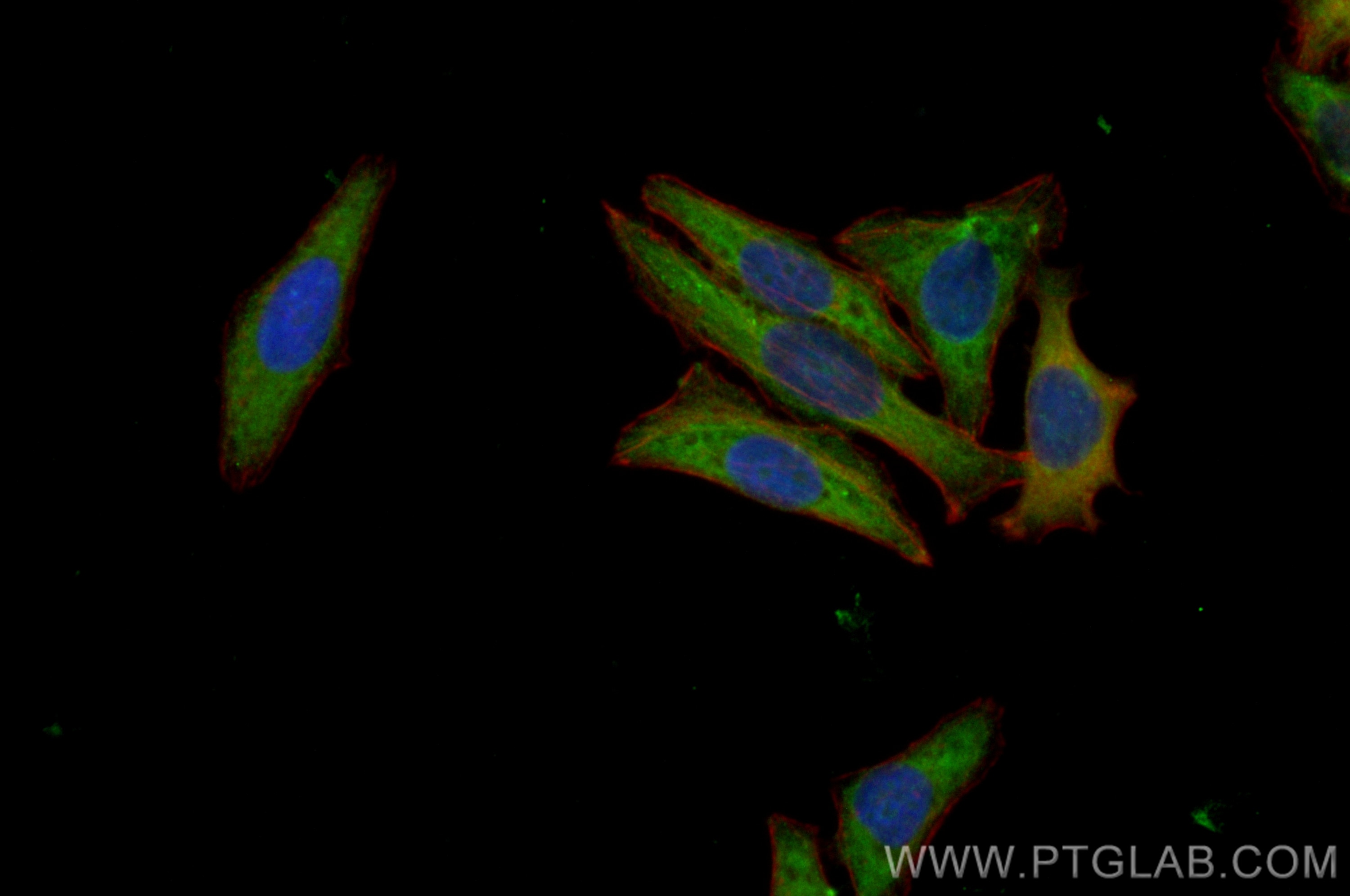Validation Data Gallery
Filter:
Tested Applications
| Positive IF/ICC detected in | HepG2 cells |
Recommended dilution
| Application | Dilution |
|---|---|
| Immunofluorescence (IF)/ICC | IF/ICC : 1:50-1:500 |
| It is recommended that this reagent should be titrated in each testing system to obtain optimal results. | |
| Sample-dependent, Check data in validation data gallery. | |
Product Information
CL488-24874 targets WDR81 in IF/ICC applications and shows reactivity with human, mouse samples.
| Tested Reactivity | human, mouse |
| Host / Isotype | Rabbit / IgG |
| Class | Polyclonal |
| Type | Antibody |
| Immunogen | WDR81 fusion protein Ag21666 相同性解析による交差性が予測される生物種 |
| Full Name | WD repeat domain 81 |
| Calculated molecular weight | 1941 aa, 212 kDa |
| Observed molecular weight | 74-80 kDa, 250 kDa |
| GenBank accession number | BC114568 |
| Gene Symbol | WDR81 |
| Gene ID (NCBI) | 124997 |
| RRID | AB_3672778 |
| Conjugate | CoraLite® Plus 488 Fluorescent Dye |
| Excitation/Emission maxima wavelengths | 493 nm / 522 nm |
| Form | Liquid |
| Purification Method | Antigen affinity purification |
| UNIPROT ID | Q562E7 |
| Storage Buffer | PBS with 50% glycerol, 0.05% Proclin300, 0.5% BSA , pH 7.3 |
| Storage Conditions | Store at -20°C. Avoid exposure to light. Stable for one year after shipment. Aliquoting is unnecessary for -20oC storage. |
Background Information
WD repeat-containing protein 81 (WDR81) is a 1941 amino acid protein, which contains one BEACH domain and five WD repeats. WDR81 is widely expressed in the brain. WDR81 has an association with cerebellar ataxia, mental retardation, and dysequilibrium syndrome 2. WDR81 exists as six isoforms.
Protocols
| Product Specific Protocols | |
|---|---|
| IF protocol for CL Plus 488 WDR81 antibody CL488-24874 | Download protocol |
| Standard Protocols | |
|---|---|
| Click here to view our Standard Protocols |
